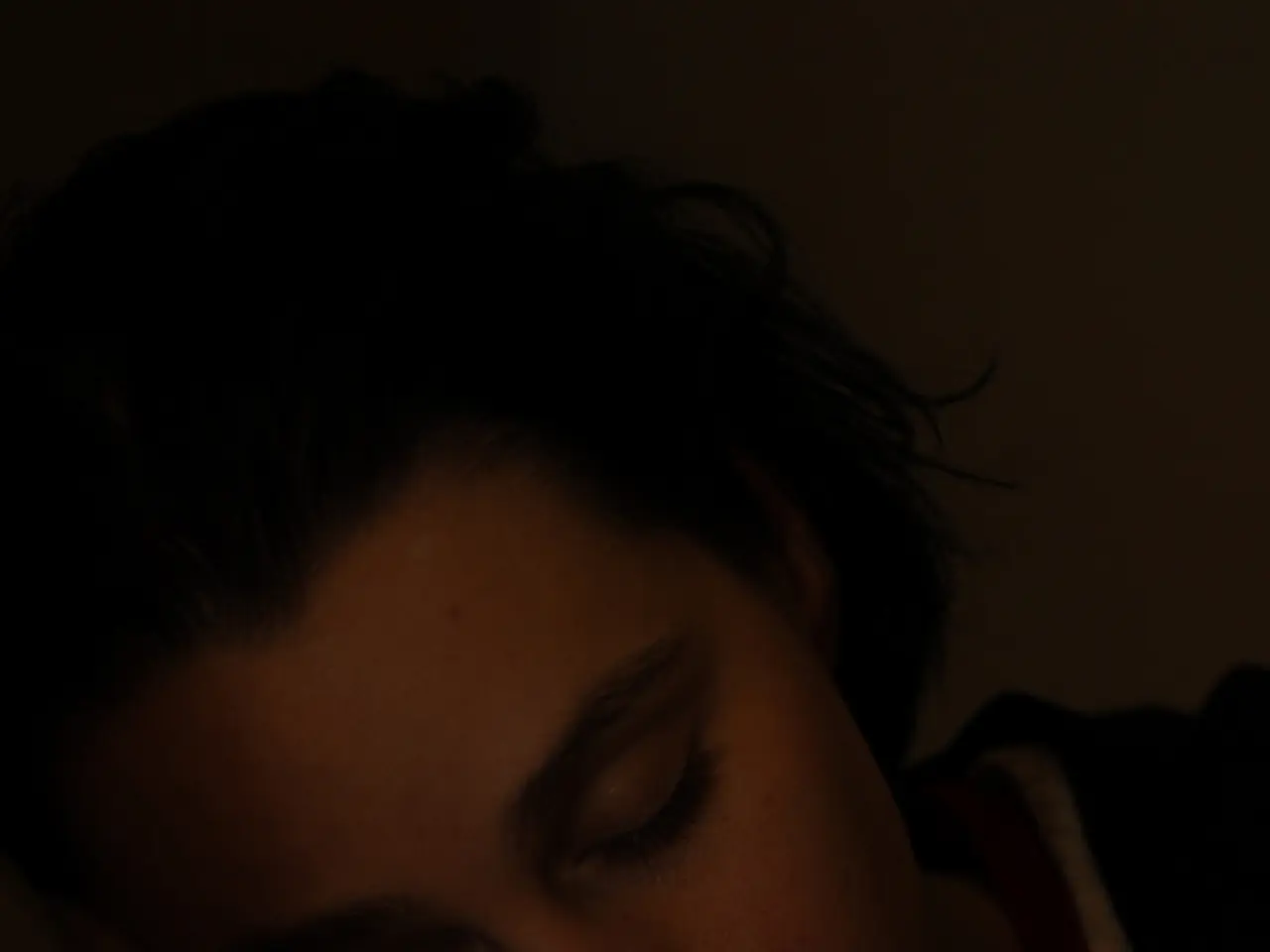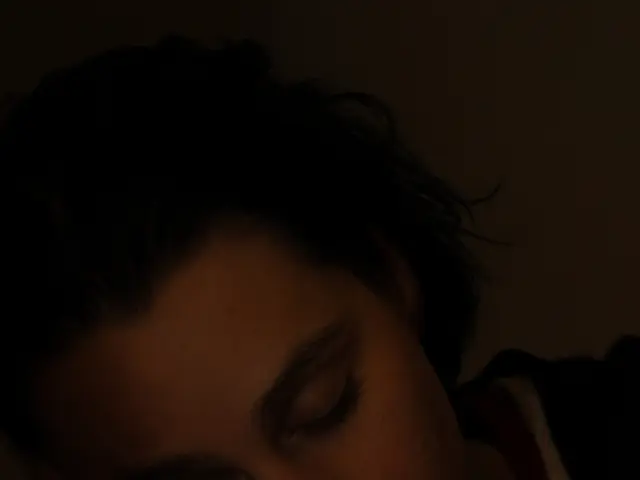Sleepless Nightmares: A Guide to Sleep Epilepsy
Understanding Sleep-Related Epilepsy: A Guide to This Sleep Disorder
Sleep epilepsy, also known as nocturnal seizures, is a type of epilepsy that takes place during sleep. This condition can lead to seizures disrupting the normal sleep cycle, often without the individual being aware of them. Navigate through sleep epilepsy's tricky terrain to improve sleep quality and overall health.
The Sleep Epilepsy Dichotomy
Unlike regular epilepsy, seizures with sleep epilepsy happen during the sleep phase, making detection difficult since individuals often do not recall any seizures. Instead, watch for signs like:
- Mysterious injuries or bruises
- Grogginess upon waking
- Excessive daytime drowsiness
Understanding sleep epilepsy's unique characteristics will aid in proper treatment and effective management.
Symptoms to Spotlight
Sleep epilepsy symptoms can vary greatly from one person to another, but common signs to consider include:
- Seizures during sleep: These can manifest as convulsions or strange movements.
- Confused awakenings: Feeling disoriented or befuddled after a seizure is common.
- Daily drowsiness: This can result from disrupted sleep cycles.
- Lost memories: Struggling to recollect events from the night.
Age Divide
Sleep epilepsy can affect people of all ages, including children and pets. Keep an eye on the following age-specific symptoms:
- In Children: Frequent bedwetting, unusual movements during sleep, or sudden sleep disturbances.
- In Dogs: Twitching or paddling during sleep, which can be startling for pet owners.
Medical Consult
When experiencing any of the symptoms above, it's essential to consult a healthcare professional. Proper diagnosis usually involves examining the medical history, sleep studies, and possibly an EEG (electroencephalogram) to monitor brain activity during sleep.
Medications and More
Sleep epilepsy treatment primarily follows similar lines as general epilepsy, with an emphasis on seizure control and enhancing overall life quality. Consider the following treatment options:
- Antiepileptic medications (ASMs): These are the primary treatment for controlling seizures by balancing brain electrical activity. Medication options include lamotrigine, levetiracetam, and valproic acid, to name a few[2][4].
- Surgery (when appropriate): When seizures stem from a specific brain area that can safely be removed (lesional focal epilepsy), surgical procedures like resective surgery or MRI-guided stereotactic laser ablation are considered for effective seizure control[1][3][4].
- Neurostimulation therapies: When surgery is not suitable, devices such as vagus nerve stimulation (VNS), responsive neurostimulation system (RNS), and deep brain stimulation offer alternatives, particularly for drug-resistant cases[1][4][5].
- Tailored approach: Treatments are adjusted based on seizure type, patient age, side effect profiles, and lifestyle considerations, resulting in personalized care for optimal seizure control and minimal side effects[2].
Always consult with a healthcare expert when starting any medication or treatment.
Living with Sleep Epilepsy
Living with sleep epilepsy can seem overwhelming, but with the correct strategies and support, a fulfilling life is within reach. Key aspects to embrace include:
- Knowing sleep epilepsy: Understanding the distinct characteristics of sleep epilepsy empowers you to manage your condition better.
- Communication: Be open with friends and family about your condition, so they know how to support you.
- Self-education: Informing yourself about sleep epilepsy keeps you informed and proactive in combating it.
- Healthy lifestyle: Maintaining a balanced diet, regular exercise, and proper sleep schedule can help reduce stress and enhance sleep quality.
- Medical support: Regular consultations with healthcare professionals aid in monitoring your condition and adjusting your treatment plan.
Q&A
What is sleep epilepsy?
Sleep epilepsy is a type of epilepsy where seizures occur during sleep, impacting overall sleep quality and health.
What are the symptoms of sleep epilepsy?
Common sleep epilepsy symptoms include:* Unexplained nighttime movements* Grogginess upon waking* Excessive daytime sleepiness* Memory problems
How is sleep epilepsy diagnosed?
Diagnosis typically involves medical history review, sleep studies, and an EEG (electroencephalogram) to evaluate brain activity during sleep.
What treatments are available for sleep epilepsy?
Treatments for sleep epilepsy generally focus on seizure control and enhancing life quality, including:* Antiepileptic medications* Surgery (if appropriate)* Neurostimulation therapies for drug-resistant cases* Personalized care strategy
Can sleep epilepsy occur in children?
Yes, sleep epilepsy can impact children. Keep a close eye on children's sleep patterns and consult a healthcare professional if any concerning symptoms arise.
Is sleep epilepsy common in dogs?
Dogs can also experience sleep epilepsy. Signs include twitching, paddling, or strange movements during sleep. Consult a veterinarian for proper diagnosis and treatment.
Can you drive with sleep epilepsy?
Driving with sleep epilepsy can be hazardous. Consult your healthcare provider to determine if you can safely drive during your treatment.
What causes sleep epilepsy?
The exact causes of sleep epilepsy remain unclear, but contributors may include genetic predisposition, brain injuries, and other health conditions.
What medications are used to treat sleep epilepsy?
Common medications for sleep epilepsy include:* Carbamazepine* Lamotrigine* Levetiracetam
Always consult your healthcare professional before starting any medication.
- The unique characteristics of sleep epilepsy warrant attention, as they can help in proper treatment and effective management of this neurological disorder that affects health and wellness.
- Seeking medical expertise is crucial when dealing with sleep epilepsy, as diagnosis typically involves examining the medical history, sleep studies, and possibly an EEG to monitor brain activity during sleep.
- Mental health is an essential aspect of overall health, and individuals living with sleep epilepsy may benefit from seeking resources and support networks to maintain a positive outlook and cope with the challenges associated with their condition.






